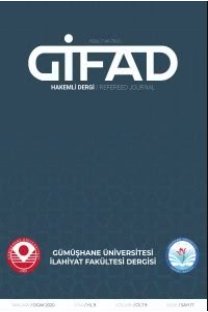TWITTER GÖRSELLERİNİN VATANDAŞLARI KOLEKTIF EYLEME TEŞVİK POTANSİYELİ
Bu deney, yalnızca görsel içeren Tweet’lerin yalnızca metin içeren Tweet'lerle karşılaştırıldığında, Beyaz Amerikalılar’ı Black Lives Matter protestoları için kolektif eylemi teşvik etmek potansiyelini test etmiştir. Bağımlı değişken olarak kolektif eyleme katılma isteği kullanılarak, 2 (Tweet modu: sadece görsel-sadece metinsel) x 3 (Tweet içerik türü: öfke uyandıran, etkinlik (efficacy) uyandıran, nötr) şeklinde denekler arası deney tasarım uygulanmıştır. Beklentinin aksine bulgularda, vatandaşları siyasete katılmaya motive etmede sadece görsel içeren Tweet'lerin sadece metinsel Tweet'lerden daha etkili olduğuna veya öfke uyandıran içeriğin uyandırmayan içeriklerden daha etkili olduğuna dair hiçbir kanıt bulunamamıştır. Öfke uyandıran, görsel temelli sosyal protesto Tweet'lerinin, Beyaz Amerikalılar arasında öfke uyandırmayan görsel Tweet'lere göre yalnızca marjinal olarak daha fazla harekete geçirici olduğu bulunmuştur. Bununla birlikte, sonuçlar, kolektif etkinlik (efficacy) uyandıran metinsel Tweet'lerin, etkinlik ortaya çıkaran görsel Tweet'lerden daha fazla kolektif eyleme katılım niyeti uyandırdığını gösterdi. Dahası, öfke uyandıran görsellere maruz kaldıktan sonra erkekler, kadınlardan daha fazla toplumsal protestolara katılma eğilimi göstermiştir. Öte yandan kadınlar, etkinlik ortaya çıkaran görsel içeriklere maruz kaldıktan sonra protesto eyleminde bulunma konusunda erkeklerden daha istek belirtmişlerdir.
Anahtar Kelimeler:
Sosyal medya, Sosyal protestolar, Kolektif eylem, Duygular, Görseller
THE POTENTIAL OF TWITTER IMAGES FOR GALVANIZING CITIZENS TO COLLECTIVE ACTION
This experiment explored the mobilizing potential of image-only tweets about Black Lives Matter protests compared to text-only tweets to stimulate collective action among Caucasians. A 2 (tweet modality: image vs. textual) x 3 (tweet content type: anger-evoking, efficacy-eliciting, neutral), between-subjects design was employed with collective action intent as the dependent variable. Contrary to expectation, the results produced no evidence that image-based tweets are more effective than text-based ones, or that emotional content is better than non-emotional content, at motivating citizens to become politically engaged. Anger-evoking, image-based protest tweets were only marginally more galvanizing among Caucasians than non-anger evoking image-based tweets. However, the results showed that efficacy-eliciting textual tweets stoked greater intention to participate than efficacy-eliciting image tweets. Furthermore, men, more than women, were more inclined to get involved in social protests after viewing anger-evoking images. Women, on the other hand were more inspired to take protest action than men after exposure to efficacy-eliciting images.
Keywords:
Social media, Social protests, Collective action, Emotions, Images,
___
- ANDERSON, Mary and HITLIN, Paul (2016). Social Media Conversations About Race. 3. The hashtag #BlackLivesMatter emerges: Social activism on Twitter. Retrieved from http://www.pewinternet.org/2016/08/15/the-hashtag-blacklivesmatter-emerges-social-activism-on-twitter/
- ANDERSON, Mary; TOOR, Saif; RAINIE, Lee and SMITH, Aaaron (2018). An analysis of #BlackLivesMatter and other Twitter hashtags related to political or social issues. Pew Research Center. Retrieved from https://www.pewresearch.org/internet/2018/07/11/an-analysis-of-blacklivesmatter-and-other-twitter-hashtags-related-to-political-or-social-issues/ (accessed 13 December 2019)
- ARPAN, Laura M. and TÜZÜNKAN, Fatih (2011). Photographic Depiction of Normative Deviance and Informational Utility as Predictors of Protest News Exposure, Related Perceptions, and Story Comprehension. Mass Communication & Society, 14(2), 178–195
- ARPAN, Laura; BAKER, Kaysee; LEE, Youngwon; JUNG, Taejin; LORUSSO, Lori and SMITH, Jason (2006). News Coverage of Social Protests and the Effects of Photographs and Prior Attitudes. Mass Communication and Society, 9(1), 1–20. DOI: 10.1207/s15327825mcs0901_1
- BANDURA, Albert (1977). Self-efficacy: Toward a unifying theory of behavioral change. Psychological Review, 84(2), 191–215. DOI: 10.1037/0033-295X.84.2.191
- BAS, Ozen and GRABE, Maria Elizabeth (2015). Emotion-Provoking Personalization of News: Informing Citizens and Closing the Knowledge Gap? Communication Research, 42(2), 159–185. DOI: 10.1177/0093650213514602
- BAS, Ozen and GRABE, Maria Elizabeth (2016). Personalized News and Participatory Intent: How Emotional Displays of Everyday Citizens Promote Political Involvement. American Behavioral Scientist, 60(14). DOI: 10.1177/0002764216676247
- BENJAMIN, Daniel J. and SHAPIRO, Jesse M. (2009). Thin-slice forecasts of gubernatorial elections. Review of Economics and Statistics, 91(3), 523–536. DOI: 10.1162/rest.91.3.523
- BENNETT, W. Lance and SEGERBERG, Alexandra (2012). The Logic of Connective Action. Information, Communication & Society, 15(5), 739–768.
- BOULIANNE, Shelley (2015). Social media use and participation: a meta-analysis of current research. Information, Community and Society, 18(5), 524-538.
- BRADER, Ted (2005). Striking a Responsive Chord: How Political Ads Motivate and Persuade Voters by Appealing to Emotions. American Journal of Political Science, (2), 388. Retrieved from
- ISSN: 2146-3301
- Yayın Aralığı: Yılda 2 Sayı
- Başlangıç: 2011
- Yayıncı: Mustafa Cankut
Sayıdaki Diğer Makaleler
TÜRK BASININDA ÇERÇEVELEME MÜCADELESİ: AMASRA MADEN KAZASI HABERLERİNİN ÇERÇEVELEME ANALİZİ
Beyler YETKİNER, Hüseyin ÖZARSLAN, M. Salih GÜRAN
HALKLA İLİŞKİLER ALANINDAKİ MESLEKİ BEKLENTİLER: İŞ İLANLARI ÜZERİNDEN BİR ANALİZ
İLETİŞİMSEL ve ZİHİNSEL BİR SÜREÇ OLARAK JERRY FODOR’UN DÜŞÜNCENİN DİLİ TEORİSİ
BİLİM KURGU SİNEMASINDA DÜNYA DIŞI YAŞAM TASVİRLERİ
Mehmet Ali ÇINAR, Sertaç Timur DEMİR
KÜRESEL BİR HAYALETİN YEREL GÖLGELERİ: TÜRKİYE’DE CADILAR BAYRAMI ÜZERİNE BİR ANALİZ
Mert SEVEN, Simge UĞURLUER, Kardelen AYSEL
PEIRCE VE BARTHES'IN GÖSTERGEBİLİM MODELLERİNİN REKLAM ARAŞTIRMALARINDA KULLANIMI
Geert Hofstede'nin kültürel boyutları dünya çapındaki pandemi istatistikleriyle ilişkili mi?
